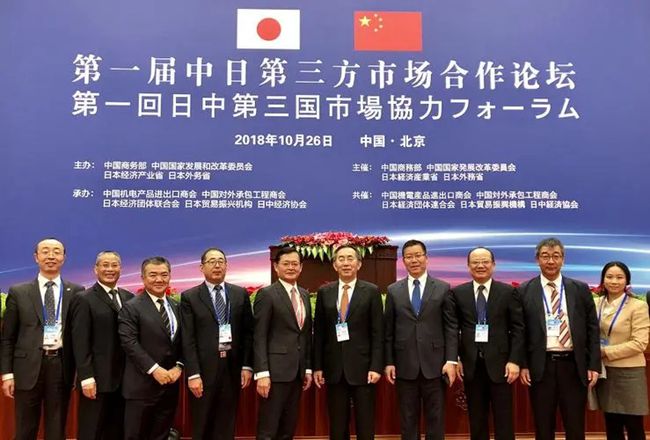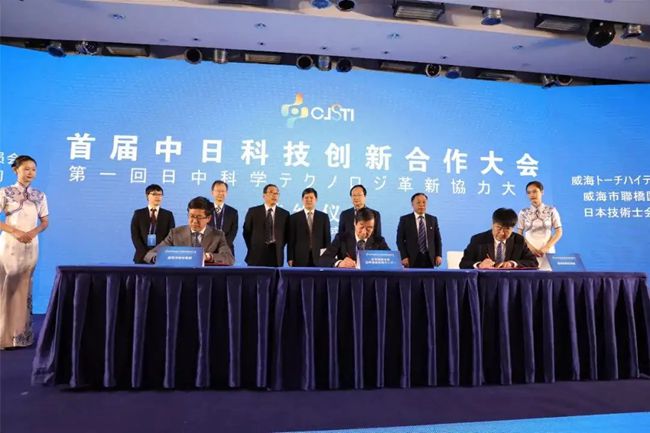This year marks the 50th anniversary of the normalization of diplomatic relations between China and Japan. "Since the normalization of diplomatic relations between China and Japan in 1972, Sino-Japanese cooperation in the electronic information industry has been extended and expanded from small to large, from private to official, from partial to comprehensive, with remarkable results in industrial cooperation, realizing the leap from vertical division of labor to horizontal division of labor, forming a mutually beneficial and complementary, mutually beneficial division of labor and cooperation, effectively promoting the industrial upgrading and structural optimization of both countries. " Recently, in the context of RCEP Northeast Asia regional cooperation and Liaoning FTA system innovation academic seminar, Jilin University Japan Research Center director, vice president of the National Association of Japanese Economics Pang Deliang said, at present, China-Japan electronic information industry cooperation has become an important part of China-Japan economic and trade cooperation.
Pang Deliang said, until the 1980 "China-Japan Intergovernmental Agreement on Scientific and Technological Cooperation" was signed, China and Japan electronic information industry officially entered a period of comprehensive cooperation. As China's opening up to the outside world continues to expand, the market demand continues to expand, the business environment continues to improve, Japanese enterprises have to set up factories in China in the form of sole proprietorship, joint ventures, cooperation, and then the total amount of trade in the electronic information industry between the two countries increased rapidly. Although China-Japan electronic information industry cooperation started late, but the development is fast.

According to the statistics of Japan's Ministry of Finance, Japan's exports to China's electronic information industry increased from 3 trillion yen in 2019 to nearly 4 trillion yen in 2021, and imports from China's electronic information industry rose from 5 trillion yen in 2019 to 6 trillion yen in 2021. According to Bank of Japan statistics, Japan's investment in China in the electronics and information industry has remained in double digits since 2019 as a percentage of manufacturing investment in China, reaching 16.3 per cent in 2021.
Pang Deliang said that in the context of the transformation of the old and new dynamics and the transformation and development of the digital economy, the new generation of electronic information technology continues to empower traditional industries, and cooperation between China and Japan's electronic information industry has been extended from traditional manufacturing to the level of intelligent manufacturing, with pragmatic cooperation between the two sides in lithium batteries, new energy vehicle chips, intelligent medical machinery and equipment and other electronic information industry segments increasing.
"There is great potential for cooperation between China and Japan in cutting-edge medical devices." Pang Deliang cited the example of Japan as a traditional mechanical and electronic industrial powerhouse, with global competitive advantages in the field of medical and health equipment. In recent years, China's scientific and technological independent innovation capacity has continued to improve, and has continued to break through the key core technologies of cutting-edge electronic medical devices, and the number of high-end medical devices independent intellectual property rights has continued to increase. At present, China has become the third country in the world to master all the core technologies of high-end magnetic resonance and complete machine manufacturing. "During the 14th Five-Year Plan period, China will enter a stage of deep aging. The combination of Japan's mature equipment systems and advanced medical devices with China's huge medical health and elderly care market demand provides a new opportunity for in-depth cooperation between China and Japan. High-quality cooperation between the two countries in the field of ageing society and intelligent medical equipment is expected to become even closer.
In Pang Deliang's view, Sino-Japanese cooperation in the electronic information industry also faces challenges. He analysed that the New Crown pneumonia epidemic, the Russia-Ukraine conflict and other real-life issues are profoundly affecting the geopolitical landscape of Northeast Asia, and Sino-Japanese relations are at a critical point where it is better to advance or retreat. In particular, Japan's adjustment of national economic security policy behavior on the global value chain division of labor, supply chain and industrial chain layout will have different degrees of impact, China and Japan electronic information industry depth of cooperation will face a lot of uncertainty.
"China-Japan electronic information industry cooperation has gone through 50 years, there is a foundation, there are effective, but also expectations. As an important engine to lead industrial innovation drive, promote economic development and facilitate manufacturing transformation and upgrading, the electronic information industry is a key object of cultivation and support for both China and Japan, and the prospects for cooperation are promising." Pang Deliang believes that in order to further promote Sino-Japanese cooperation in the electronic information industry, efforts should be made in the following three areas.
First, expand the market opening of China-Japan electronic information industry and deepen the reciprocal cooperation between China and Japan. The development of China and Japan's electronic information industry in no way means closed doors, fighting alone, but should strengthen the policy coordination between the two sides, expand the level of market opening, increase the practical cooperation in electronic information industry segments. The governments of China and Japan should take advantage of the situation, according to their respective industrial development positioning, economic and social reform needs, international division of labor dynamic optimization and external shocks and other factors, constantly adjust the focus of cooperation in the electronic information industry, guide the direction of industrial cooperation, expand the areas of convergence of interests, and promote the upgrading of the electronic information industry and the digitalization and intelligent development of the manufacturing industry on both sides.

Secondly, the RCEP framework has been used to promote the deep integration of China and Japan's electronic information industry chain, and the signing of the RCEP has achieved a historic breakthrough in the bilateral tariff reduction arrangement between China and Japan, which is a mutually beneficial and win-win trade system. Japan has great advantages in semiconductor refinement materials and precision equipment, while China is the world's largest and fastest growing electronic information industry market, and has great competitive advantages in the midstream and downstream of the electronic information industry chain. Therefore, China and Japan should work together to deepen the RCEP framework, promote the efficient implementation of RCEP, create a mutually beneficial and complementary economic cooperation network between China and Japan, and accelerate the deep integration of the electronic information industry chain between China and Japan, so as to promote the virtuous cycle and high-quality development of the electronic information industry of both countries.
Third, return to the origin of the market and respect the laws of the market. China and Japan electronic information industry cooperation should follow the laws of the market, and constantly enhance political mutual trust, strengthen high-level dialogue, from the institutional mechanism level to jointly create, optimize the ecological environment of China-Japan electronic information industry in-depth cooperation, give full play to the China-Japan economic and trade cooperation "ballast" and "propeller The role of "ballast" and "propeller" of Sino-Japanese economic and trade cooperation, the development of each other's industries as opportunities rather than challenges, in order to work together to promote the depth of cooperation and mutual benefit of the electronic information industry.

